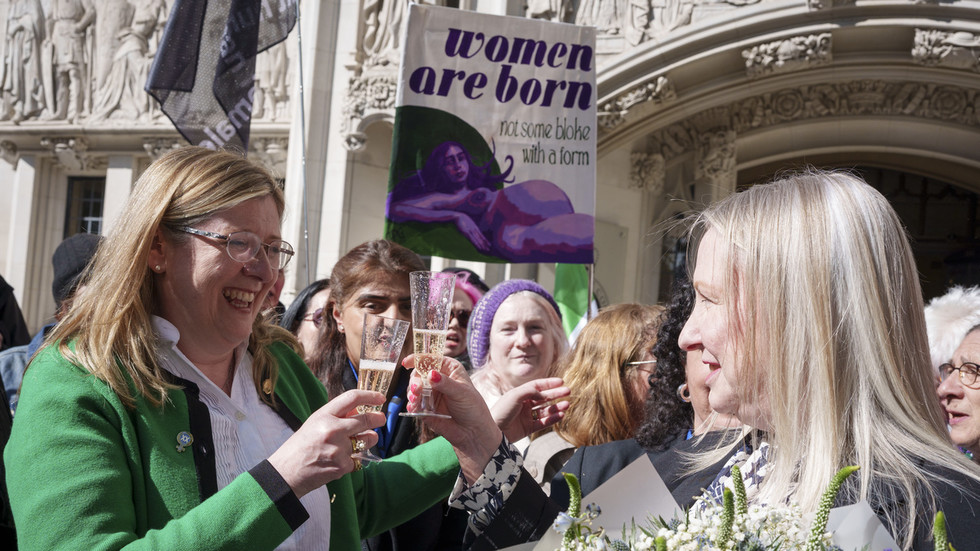A campaign group in Scotland had challenged the government’s attempts to allow transgender individuals into roles reserved for women
The UK Supreme Court ruled on Wednesday that the term “woman” refers to biological sex, not gender identity, meaning that transgender individuals who were born male are not legally considered women for the purposes of single-sex protections.
The ruling comes after the For Women Scotland rights campaign challenged a Scottish Government law aimed at increasing the number of women on public boards, which included transgender women with legal recognition as female.
The group claimed this violated the UK-wide Equality Act 2010 – a law that protects people from discrimination based on characteristics like sex, race, and disability. They asked the UK Supreme Court to confirm that “woman” in the Act means biological female, not someone assigned female status through a gender recognition certificate.
In its judgment, the court stated that “the terms ‘women’ and ‘sex’ in the Equality Act 2010 refer to a biological woman and biological sex,” adding that interpreting sex to include acquired gender “would lead to incoherence” in provisions protecting women on the basis of pregnancy, maternity, and other sex-specific criteria.
A government spokesperson, responding to the judgment, stated that the ruling “brings clarity and confidence, for women and service providers such as hospitals, refuges, and sports clubs.” The spokesperson added that “single-sex spaces are protected in law and will always be protected by this government.”
Lord Hodge, one of the presiding justices, also noted that the court did not view the ruling as “a triumph” of one group over another and that it was simply necessary to provide legal clarity on the meaning of terms in existing legislation.
British author J.K. Rowling, one of the most prominent supporters of For Women Scotland, also hailed the court’s ruling.
“It took three extraordinary, tenacious Scottish women with an army behind them to get this case heard by the Supreme Court and, in winning, they’ve protected the rights of women and girls across the UK,” the writer said on X.
Some, however, have criticized the Supreme Court’s decision, claiming it could reduce legal recognition for transgender people. The Scottish Greens issued a statement slamming the ruling, calling it “deeply concerning for human rights.” LGBTQ+ charity Stonewall also expressed “deep concern at the widespread implications” of the move.
You can share this story on social media:
Read the full article here

